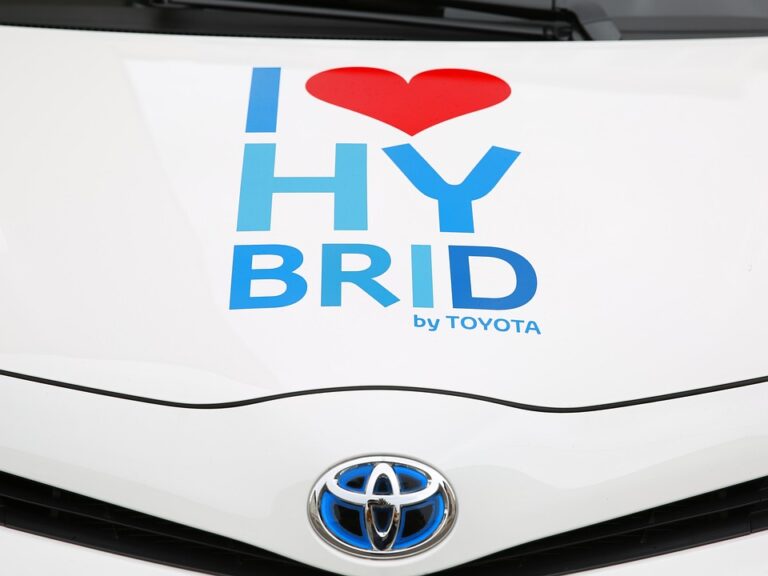Hybrid vs. Electric: Which Green Vehicle is Right for You?
The green vehicle revolution is upon us, ushering in new choices for environmentally conscious drivers. As the automotive industry shifts towards more sustainable options, hybrid vehicles and fully electric cars (EVs) are becoming the frontrunners in this movement. But how do you decide which green vehicle is right for you? In this article, we’ll dissect the key differences between hybrids and electric cars to help you make an informed decision.
Understanding Hybrid Vehicles
Hybrid vehicles combine a traditional internal combustion engine with an electric motor, allowing them to utilize both gasoline and electricity for power. This duality can significantly improve fuel efficiency, reduce emissions, and provide greater flexibility for drivers.
Benefits of Hybrid Vehicles
-
Fuel Efficiency: Hybrids generally offer better fuel economy than conventional vehicles. In fact, according to the Environmental Protection Agency (EPA), the average hybrid can achieve about 54 miles per gallon compared to the typical gas-powered vehicle that gets around 25 mpg.
-
Decreased Emissions: By utilizing electric power, hybrids can produce fewer tailpipe emissions, making them a greener choice than traditional combustion engines. The EPA estimates that hybrids can reduce carbon dioxide emissions by up to 30% compared to their gas counterparts.
- Convenience: Since hybrids operate on gasoline, there’s no concern about charging stations. This convenience makes them an excellent option for long-distance travelers or those living in areas with limited EV infrastructure.
Drawbacks of Hybrid Vehicles
-
Less Electric-Only Range: While hybrids can run on electricity, the range is typically limited to only a few miles before the gasoline engine kicks in, which may not satisfy those looking for a fully electric experience.
- More Maintenance: Maintaining both an electric motor and a combustion engine may lead to higher maintenance costs over time.
Understanding Electric Vehicles
Fully electric cars run solely on electric power and do not use gasoline or diesel. They are designed to be charged via a power outlet or charging station, relying entirely on electricity for propulsion.
Benefits of Electric Vehicles
-
Zero Emissions: EVs produce no tailpipe emissions, making them the most environmentally friendly option available today. As cities worldwide adopt stricter emissions regulations, this can be a significant advantage.
-
Lower Operating Costs: Electric vehicles typically have lower operating and maintenance costs. According to a study by the Department of Energy, it costs around half as much to drive an electric car compared to gasoline vehicles.
- Innovative Technology: Many electric vehicles come packed with advanced technology, including sophisticated driver-assistance systems. Modern features such as software updates can enhance performance over time.
Drawbacks of Electric Vehicles
-
Range Anxiety: While industry advancements have significantly increased the mileage EVs can cover per charge, drivers might still worry about running out of battery, especially in regions with few charging stations.
- Charging Time: Charging an EV takes longer than filling up a traditional gas tank. While fast chargers can replenish a battery to 80% in around 30 minutes, convenience may vary based on your location and available infrastructure.
Hybrid vs. Electric: Making Your Choice
When deciding between hybrid and electric vehicles, consider your lifestyle and driving habits.
-
Daily Commutes: If you primarily use your vehicle for short distances, an electric vehicle might be your best option. However, if you often make longer trips or live in an area with limited charging infrastructure, a hybrid vehicle could be more practical.
-
Environmental Impact: If minimizing your carbon footprint is your primary goal, a fully electric vehicle will have a more significant environmental benefit over time.
- Budget Considerations: Depending on purchase incentives and rebates that vary by location, one vehicle may offer more financial benefits than the other.
Example: Long-Distance Travel vs. Urban Driving
Consider Jack and Sarah. Jack frequently travels on the highway for business and prefers the flexibility offered by a hybrid vehicle. He appreciates the efficiency during his road trips without the need to find charging stations. Meanwhile, Sarah lives in a metropolitan area with numerous charging points and has a short commute to work each day, making her an ideal candidate for an electric vehicle.
Conclusion: Which Green Vehicle is Right for You?
Choosing between hybrid vehicles and electric cars ultimately depends on your needs, driving patterns, and environmental goals. Both options play essential roles in the transition to greener transportation. Whether you opt for a hybrid or an electric vehicle, you’ll be contributing to a more sustainable future.
For additional insights into green vehicles, consider checking out our articles on Electric Vehicle Tax Credits and Top Hybrid Cars of 2023.
To stay updated on the latest trends in green transportation, visit the U.S. Department of Energy for expert resources and statistics.
Images:
- Image of a Hybrid Vehicle on a scenic road; Alt text: "Hybrid vehicle driving towards a greener future."
- Image of an Electric Car charging at a station; Alt text: "Electric vehicle charging station in urban setting."


